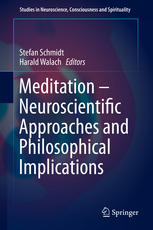

Most ebook files are in PDF format, so you can easily read them using various software such as Foxit Reader or directly on the Google Chrome browser.
Some ebook files are released by publishers in other formats such as .awz, .mobi, .epub, .fb2, etc. You may need to install specific software to read these formats on mobile/PC, such as Calibre.
Please read the tutorial at this link: https://ebookbell.com/faq
We offer FREE conversion to the popular formats you request; however, this may take some time. Therefore, right after payment, please email us, and we will try to provide the service as quickly as possible.
For some exceptional file formats or broken links (if any), please refrain from opening any disputes. Instead, email us first, and we will try to assist within a maximum of 6 hours.
EbookBell Team

0.0
0 reviewsThis volume features a collection of essays on consciousness, which has become one of the hot topics at the crossroads between neuroscience, philosophy, and religious studies. Is consciousness something the brain produces? How can we study it? Is there just one type of consciousness or are there different states that can be discriminated? Are so called “higher states of consciousness” that some people report during meditation pointing towards a new understanding of consciousness?
Meditation research is a new discipline that shows new inroads into the study of consciousness. If a meditative practice changes brain structure itself this is direct proof of the causal influence of consciousness onto its substrate. If different states of consciousness can be linked with properties and states of the brain this can be used to study consciousness more directly. If the sense of self is modifiable through meditative techniques and this can be objectively shown through neuro-imaging, this has profound implications for our understanding of who we are. Can consciousness, in deep states of meditative absorption, actually access some aspect of reality which we normally don't? Meditation research can potentially foster us with a new access to the phenomenological method in general. This has even been branded with a new catch-phrase: Contemplative Science. It brings together the most modern neuroscientific approach and the most advanced phenomenological methodology of studying the mind from within, through highly skilled self-observation that has gone through many thousand hours of honing the capacity to look carefully, without distraction.
This book addresses these issues by bringing together some of the leading researchers and thinkers in the field. The scope of the volume reaches from first person neuroscience to Indian philosophy, from pedagogic applications to epistemological aspects and from compassion meditation to the study of brain activity.